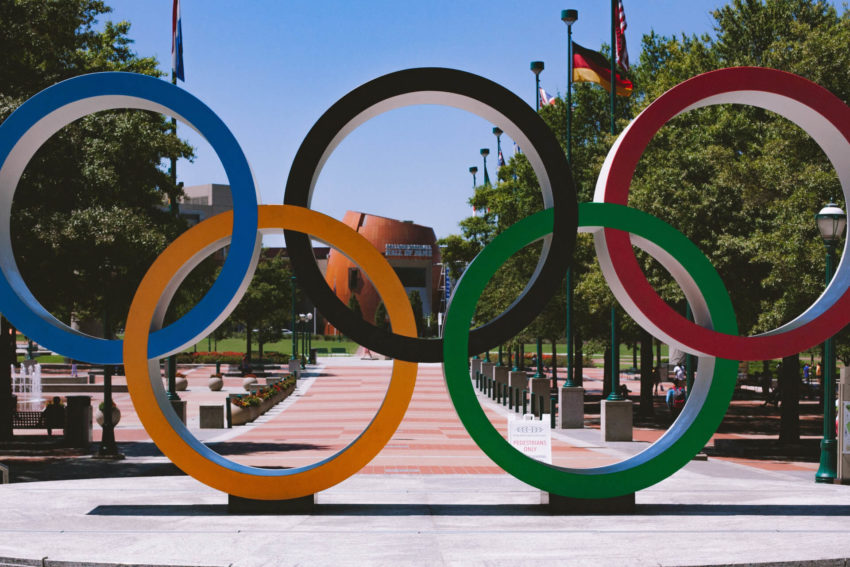The Atlanta Olympics & Paralympics

After enjoying this year’s Olympic and Paralympic Games in Tokyo, it’s hard not to become nostalgic for the event that transformed Atlanta in so many ways back in 1996. From the events that made it memorable, the controversies that failed to overshadow it, to the legacy it left behind, we look at what happened in the ‘96 Atlanta Games and the places you can still visit in the city to remember it.
New Sports & Main Events
Of all the images that come to mind when remembering the Atlanta Olympics, Janet Evans passing the torch to Olympic hero Muhammad Ali is one of the most powerful. At the time Ali was suffering from Parkinson’s and he held the torch in his unaffected hand, cutting a proud silhouette in the 85, 000-seat stadium.
The Centennial Olympic Park, an area created for the games but one that did not fall under the security regulations was bombed in the early hours of the 27th of July. This tragic incident resulted in two deaths and 110 injuries. It was an event that highlighted the importance of security during the Games and encouraged future host cities to increase the level of security.
Emerging from this adversity, the ‘96 Atlanta Games saw great athletic feats from athletes such as Michael Johnson who won both the 200m and 400m events in his iconic gold shoes- his 200m world record was upheld for 12 years. Marie-José Pérec of France also seized the winning spot for both the 200m and 400m races. Josia Thugwane won gold for South Africa, becoming the first black South African to achieve this feat in an Olympic Games.
It was also a year of new sports with Olympic debuts of beach volleyball, mountain biking, and softball. New disciplines of lightweight rowing, women’s football, team rhythmic gymnastics, and women’s fencing were introduced. Meanwhile, the Paralympics featured three demonstration sports: equestrian (dressage), sailing, and wheelchair rugby, all of which have become mainstays of the games.
The Controversies
There was widespread criticism of the ‘96 Games on the topic of the amount of advertising. Many complained that the Games were over-commercialized and the IOC President Juan Antonio Samaranch, instead of saying his traditional phrase “the best Games ever” announced that they had been “most exceptional”. Unlike many Olympic Games, the 96’ Atlanta event turned a profit – this was thanks to a record income from sponsorship deals amongst other private funding projects. Looking back at this today, many admire how the Atlanta Games avoided burdening the city with debt and draining public funds as happened in many countries such as Greece (Athens 2004) and Brazil (Rio 2016) in the years that followed.
Another positive outcome of the ‘96 Games was that it was the first Paralympic Games to receive worldwide corporate sponsorship. The Atlanta Paralympics Congress held before the sporting events brought to light global issues in elite sport and highlighted the empowerment of people with a disability. This created a flow of dialogue that piqued people’s interest in the games that followed.
How it Changed Atlanta
The Atlanta Olympic Games had a huge impact on the city, from the construction of the international airport which opened up the city to the world, to the Centennial Olympic Park which gave Atlanta’s downtown a much-needed new lease of life. The Olympic Stadium has been in constant use first as a baseball stadium and secondly as the Center Parc college football stadium. The Olympic Village was converted into student housing for nearby universities.
The Games also had a great influence on Atlanta’s population, in 1996 Atlanta’s population was set at 3 million residents and after the Games, it expanded to 4,458,253. It became a real turning point in the city’s history and many suddenly wanted to live there making it more diverse.
Remembering the Games Today
There are many sights from the Olympic Games you can still visit today, including the Dick Lane Velodrome which is the second steepest in the US and one of the world’s most unique. Another fun sight to visit is the Clayton County International Park in Jonesboro, just south of Atlanta. It was built for the ‘96 Olympics and played host to beach volleyball events. Around this complex are numerous activities such as a waterpark and a fishing lake.
If you are interested in the cultural side of the Games, the Atlanta History Center has an exhibition exploring how the event shaped the city. Learn from fascinating collections and first-hand accounts of the effect the Games had on Atlanta.
If you want to know more about the Games or visit the iconic sights left behind in Atlanta, contact us for a custom tour itinerary.